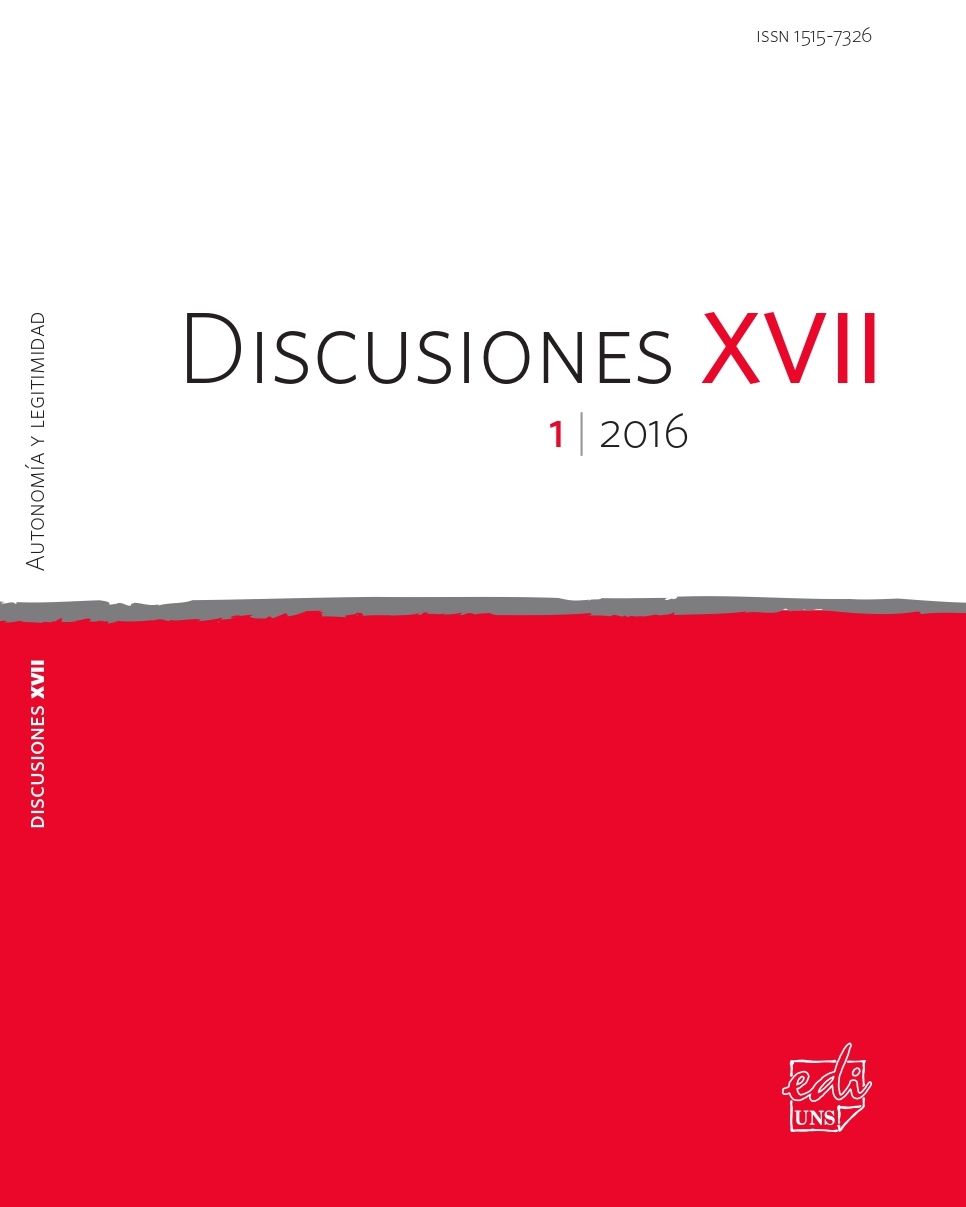Moral Autonomy and Democratic Legitimacy
DOI:
https://doi.org/10.52292/j.dsc.2016.2482Keywords:
autonomous argumentation, objective validity, democracyAbstract
Autonomy consists in the formation of normative judgments, on the basis of weighing normative arguments. This conception permits to solve the paradox of autonomy, that is to say, howthe authors of the norms can be themselves bounded by those norms,explain the objective validity of the norms as a result of an auton-omous argumentation and reconstruct the idea of democracy as aninstitutionalization of the autonomous argumentation. The autono-mous argumentation is a process in which the agents freely introducenormative arguments and normative judgments and try to arrive tocommon norms through a process of inter subjective reflection. Whenthe result of those processes is a reasonable convergence about thevalidity of certain norms, it is legitimate to claim that those normsare binding. The task of democracy is to create a political system thatperforms the requirements of autonomous argumentation.
Downloads
Downloads
Published
How to Cite
Issue
Section
License
Discusiones does not withhold rights of reproduction or copyright. Consequently, authors may share the final versions of publications.


